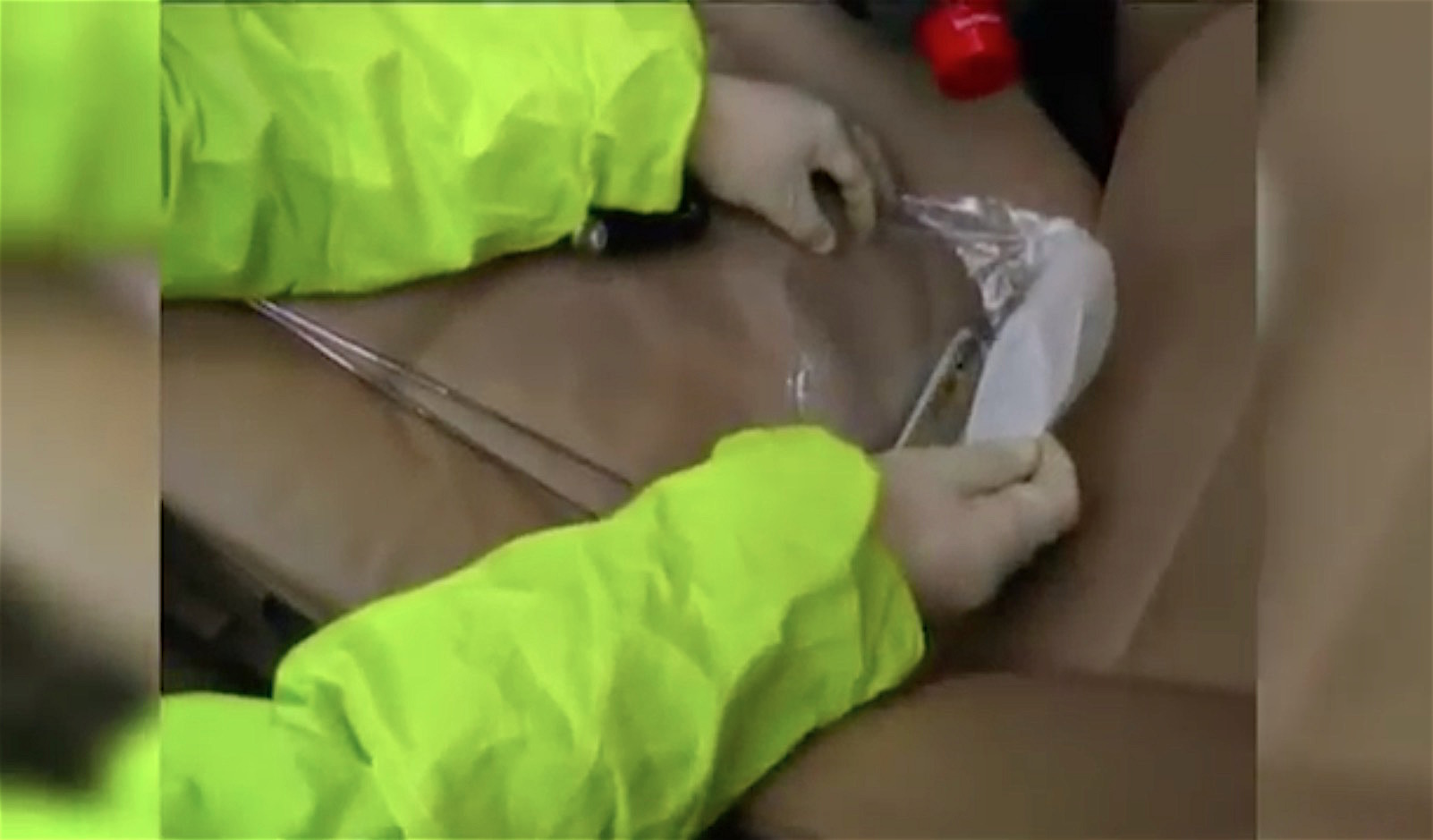Report: In Moldova, smugglers tried to sell nuclear materials to terrorists


A free daily email with the biggest news stories of the day – and the best features from TheWeek.com
You are now subscribed
Your newsletter sign-up was successful
In Moldova, criminal networks have made at least four attempts over the past five years to sell radioactive material, including bomb-grade uranium, The Associated Press reports.
During its investigation, AP found that while many middlemen have been arrested, their bosses have all escaped. A small group of Moldovan investigators trained by the U.S. government to break up the nuclear black market worked on the cases, including Constantin Malic. Malic told AP that in 2010, authorities were able to get a sawed-off piece of a depleted uranium cylinder that they believe may have been from Chernobyl (it ended up not being highly toxic). "We can expect more of these cases," he said. "As long as the smugglers think they can make big money without being caught, they will keep doing it."
In one case, a former KGB informant named Teodor Chetrus called one of Malic's sources, and said he was looking for a Middle Eastern buyer to purchase uranium. He was a middleman who hated the West, Malic said, and proclaimed "multiple times that this substance must have a real buyer from the Islamic states to make a dirty bomb." The informant made a deal to sell the bomb-grade uranium to a "buyer in the Middle East," AP says, but Chetrus wanted to ensure he was not an undercover agent. His boss was a man named Alexandr Agheenco, who lived in the Moldovan breakaway republic of Trans-Dniester. Agheenco decided not to sell the uranium all at once, instead dispensing 10-gram samples for €320,000 ($360,000) a pop. Agheenco gave his wife, Galina, the job of arranging a handoff of the uranium to Chetrus in Moldova. Police were waiting, and arrested Chetrus and Galina Agheenco after Chetrus took the uranium package she left in her Lexus; a Trans-Dniester police officer who smuggled the uranium to Galina Agheenco escaped and, along with Agheenco, was untouchable in Trans-Dniester.
The Week
Escape your echo chamber. Get the facts behind the news, plus analysis from multiple perspectives.

Sign up for The Week's Free Newsletters
From our morning news briefing to a weekly Good News Newsletter, get the best of The Week delivered directly to your inbox.
From our morning news briefing to a weekly Good News Newsletter, get the best of The Week delivered directly to your inbox.
Tests found that the uranium was high-grade material that could be used in a nuclear bomb, and when Malic searched Chetrus' house, he found plans for a dirty bomb and evidence that Chetrus was working on a separate deal with an actual buyer (this deal with a Sudanese doctor was later broken up by a sting operation). Galina Agheenco received a sentence of three years in prison because she had a young son, and Chetrus was sentenced to five years; Galina Agheenco's sentence is up, and Chetrus was released early in December 2014.
A free daily email with the biggest news stories of the day – and the best features from TheWeek.com
Catherine Garcia has worked as a senior writer at The Week since 2014. Her writing and reporting have appeared in Entertainment Weekly, The New York Times, Wirecutter, NBC News and "The Book of Jezebel," among others. She's a graduate of the University of Redlands and the Columbia University Graduate School of Journalism.
-
 A dreamy long weekend on the Amalfi Coast
A dreamy long weekend on the Amalfi CoastThe Week Recommends History, pasta, scenic views – this sun-drenched stretch of Italy’s southern coast has it all
-
 Can foster care overhaul stop ‘exodus’ of carers?
Can foster care overhaul stop ‘exodus’ of carers?Today’s Big Question Government announces plans to modernise ‘broken’ system and recruit more carers, but fostering remains unevenly paid and highly stressful
-
 6 exquisite homes with vast acreage
6 exquisite homes with vast acreageFeature Featuring an off-the-grid contemporary home in New Mexico and lakefront farmhouse in Massachusetts
-
 British warship repels 'largest Houthi attack to date' in the Red Sea
British warship repels 'largest Houthi attack to date' in the Red SeaSpeed read Western allies warn of military response to Iranian-backed Yemeni rebels if attacks on ships continue
-
 Houthi rebels claim Red Sea ship attacks
Houthi rebels claim Red Sea ship attacksspeed read Iran-backed Yemeni group vows to escalate aggression towards Israel-linked vessels in revenge for Gaza war
-
 Israel plans next phase of Gaza war as first hostages released
Israel plans next phase of Gaza war as first hostages releasedSpeed read After four-day ceasefire 'we will not stop' until destruction of Hamas, says Israel
-
 Mob storms Russian airport 'looking for Jews'
Mob storms Russian airport 'looking for Jews'Speed Read Plane from Israel surrounded by rioters chanting antisemitic slogans after landing in Russia's Dagestan region
-
 Tuberville's military promotions block is upending lives, combat readiness, 3 military branch chiefs say
Tuberville's military promotions block is upending lives, combat readiness, 3 military branch chiefs saySpeed Read
-
 Ukraine's counteroffensive is making incremental gains. Does it matter in the broader war?
Ukraine's counteroffensive is making incremental gains. Does it matter in the broader war?Speed Read
-
 US commissions first-ever Navy ship in a foreign port
US commissions first-ever Navy ship in a foreign portSpeed Read
-
 British spy chief, Wagner video suggest Prigozhin is alive and freely 'floating around'
British spy chief, Wagner video suggest Prigozhin is alive and freely 'floating around'Speed Read
